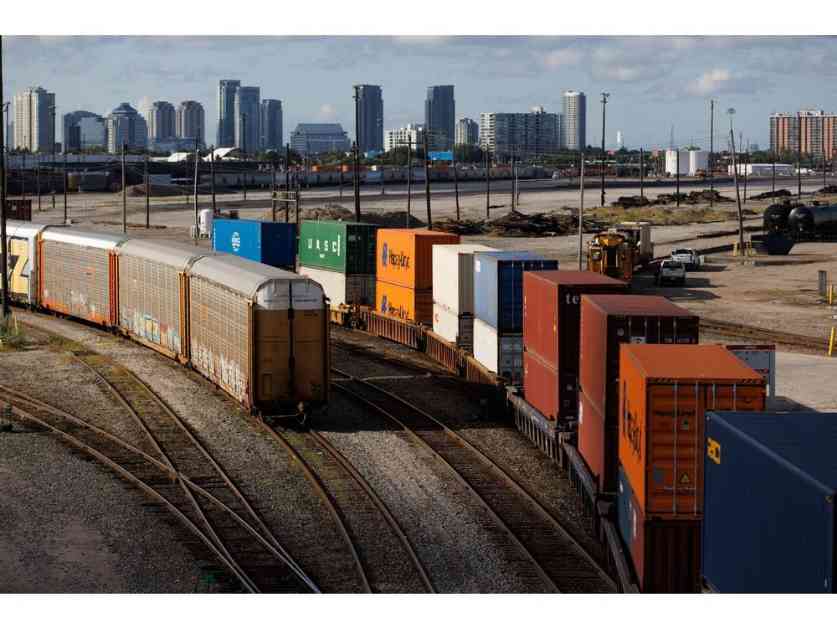Cargo Delays Loom as Canada Strike Threat Resurfaces
Importers and exporters are facing potential challenges as a looming rail strike in Canada threatens to disrupt ocean shipments, increase freight costs, and strain the busiest US ports already dealing with a surge in cargo.
Canadian National Railway Co. and Canadian Pacific Kansas City Ltd. are on the verge of locking out over 9,000 Teamsters Canada Rail Conference workers at 12:01 a.m. New York time on Thursday. The union has also issued a strike notice against Canadian Pacific that will take effect at the same time.
Impacts on Cargo Movement
The dispute has already started impacting the movement of various products such as wheat, chemicals, and fertilizers. Both railways have begun a phased shutdown of their networks to ensure that hazardous goods do not get stuck in inappropriate locations.
Alternative Routes and Uncertainties
As the rail strike looms, alternative routes are being considered, but uncertainties remain. A union of 730 dock foremen in British Columbia, home to Canada’s busiest port in Vancouver, is also threatening to strike pending a vote by the International Longshore & Warehouse Union Local 514.
Potential Consequences
Logistics companies such as C.H. Robinson are concerned that dockworker unions on the US west coast may refuse to unload cargo originally destined for Canada if the BC longshore foremen go on strike as well. This situation could lead to containers being in limbo for an extended period, as seen during a strike at the Vancouver port last year.
International Longshoremen Association Contract Talks
The labor issues in Canada coincide with contract talks covering about 45,000 dockworkers at major ports from Houston to Boston. The International Longshoremen Association is preparing to strike if no deal is reached before the September 30 expiration, potentially causing further disruptions to cargo movement.
Challenges for Marine Transport Companies
Marine transport companies have their own reasons for hesitating to divert ships, including longer distances, potential congestion, and different tariffs. Redirecting cargo will come at a cost for importers and exporters, with surcharges from marine transporters and the additional expense of switching to trucks.
Impact on US Ports
The impending stoppage of Canada’s two largest railways simultaneously would have significant impacts on the US economy, as highlighted by the US Chamber of Commerce. The potential disruptions could lead to challenges in managing congestion at US ports and ensuring sufficient capacity to handle redirected traffic.
Continued Negotiations
As the deadline approaches, all parties involved remain at the bargaining table in an effort to reach a deal before the strike takes effect. The importance of reaching a resolution is underscored by the interconnectedness of the North American transportation network and the potential consequences of a prolonged strike.
In conclusion, the threat of a rail strike in Canada has the potential to disrupt the flow of cargo, increase costs for importers and exporters, and strain the capacity of US ports already dealing with high volumes of shipments. The outcome of ongoing negotiations and the decisions made by all parties involved will have a significant impact on the efficiency and reliability of the North American transportation network.






















